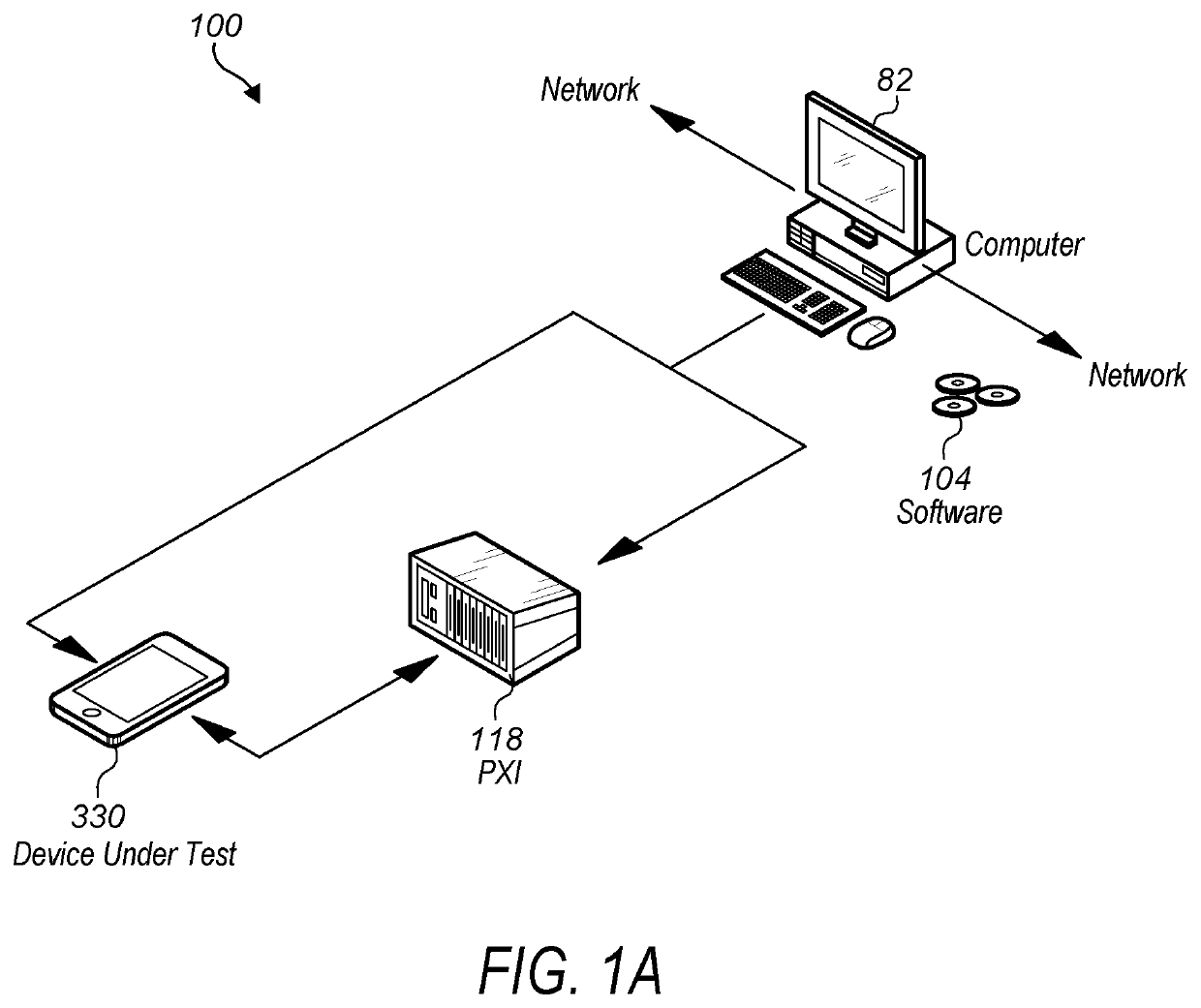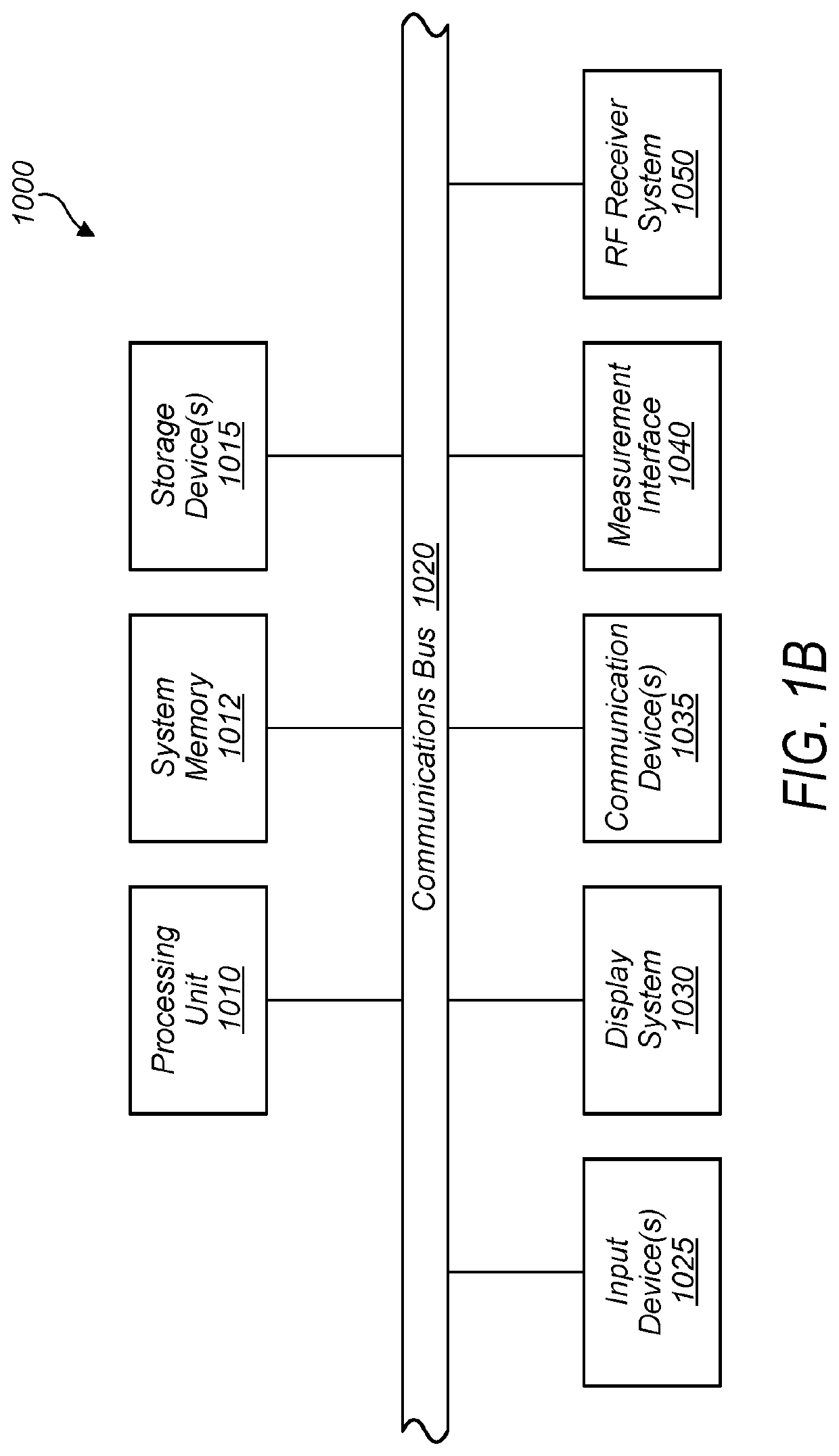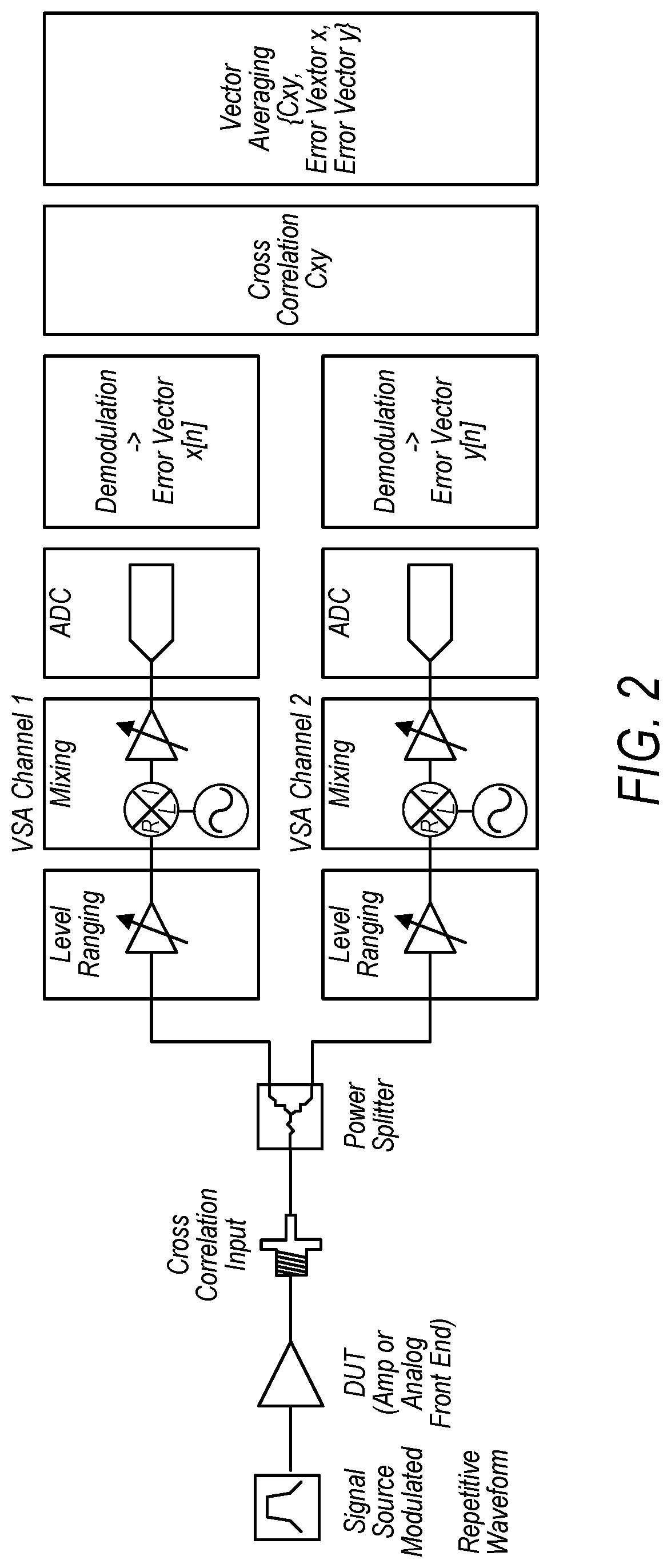Fast Convergence Method for Cross-Correlation Based Modulation Quality Measurements
a convergence method and quality measurement technology, applied in the field of modulation quality measurements, can solve the problems of difficult isolation of noise and distortion originating from dut from other sources of noise and distortion, and achieve the effect of improving measurement speed
- Summary
- Abstract
- Description
- Claims
- Application Information
AI Technical Summary
Benefits of technology
Problems solved by technology
Method used
Image
Examples
Embodiment Construction
Terminology
[0023]The following is a glossary of terms used in the present document.
[0024]Memory Medium—A memory medium is a medium configured for the storage and retrieval of information. Examples of memory media include: various kinds of semiconductor memory such as RAM and ROM; various kinds of magnetic media such as magnetic disk, tape, strip and film; various kinds of optical media such as CD-ROM and DVD-ROM; various media based on the storage of electrical charge and / or other physical quantities; media fabricated using various lithographic techniques; etc. The term “memory medium” may also include a set of two or more memory media which reside at different locations, e.g., at different computers that are connected over a network.
[0025]Programmable Hardware Element—a hardware device that includes multiple programmable function blocks connected via a programmable interconnect. Examples include FPGAs (Field Programmable Gate Arrays), PLDs (Programmable Logic Devices), FPOAs (Field...
PUM
 Login to View More
Login to View More Abstract
Description
Claims
Application Information
 Login to View More
Login to View More - R&D
- Intellectual Property
- Life Sciences
- Materials
- Tech Scout
- Unparalleled Data Quality
- Higher Quality Content
- 60% Fewer Hallucinations
Browse by: Latest US Patents, China's latest patents, Technical Efficacy Thesaurus, Application Domain, Technology Topic, Popular Technical Reports.
© 2025 PatSnap. All rights reserved.Legal|Privacy policy|Modern Slavery Act Transparency Statement|Sitemap|About US| Contact US: help@patsnap.com



